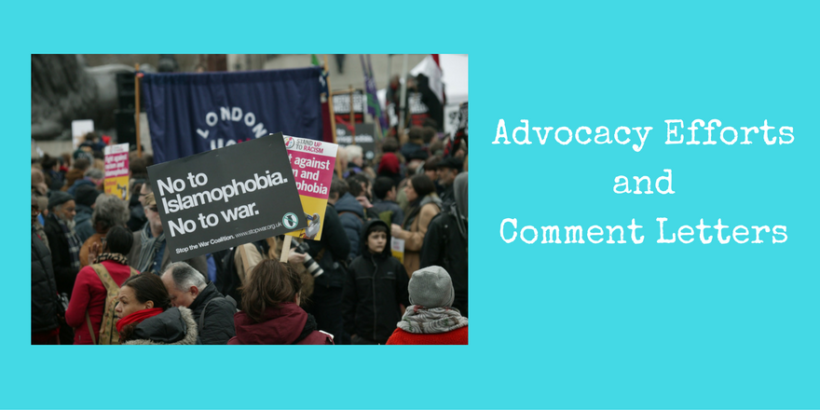July 25, 2014
The Honorable Mary Jo White
US Securities and Exchange Commission
100 F Street, NE
Washington DC 20549
Dear Ms. White:
We, the undersigned organizations, write to express our concern for the widespread and growing problem of retaliatory conduct against corporate whistleblowers. Not merely a threat to public policy, retaliation of this nature has a deleterious effect on corporate culture and growth. And, ultimately, such conduct undermines the force and efficacy of the SEC Whistleblower Program.
Retaliation against whistleblowers is a quiet and growing epidemic. In a 2012 supplement to its National Business Ethics Survey, the Ethics Resource Center (ERC) found that a near record setting 22% of employees who reported misconduct faced retaliation, up from 12% in 2007.1 More than a third of those who declined to report misconduct pointed to fear of retaliation as the reason for their silence. A culture in which employees are retaliated against or fear to speak up is a cancer that slowly grows but consistently kills and has been responsible for countless high profile corporate scandals. Most alarming, increases in the incidence of retaliation are outpacing the overall rate of increases in Whistleblowing disclosures. Various other studies confirm the prevalence of retaliation and fear of retaliation in the corporate workplace.2
The commercial marketplace wants and needs guidance. We believe the majority of corporations want to do the right thing and many invest in robust ethics and compliance programs to do so. Unfortunately, corporate compliance is not a panacea. While there is a low incidence of whistleblower retaliation in companies with strong ethical program, the ERC survey found that these organizations also represent the greatest uptick in reports of retaliation. In other words, even strong ethics programs alone are an inadequate deterrent. The proposed guidance would benefit employers and whistleblowers alike by reducing the litigation expenses associated with legal uncertainties, helping companies more effectively reduce their risk of retaliation related liability, and ensuring that individuals who report possible misconduct, both internally and to the Commission, do so with a full understanding of their reporting options and the applicable risks and rewards. It also would benefit corporations, because most whistleblowers disclose fraud against their employer, and every study has shown that in this role they are more effective than audits, compliance programs and law enforcement combined.3
The success of the SEC Whistleblower Program, the health of our markets and the broader public interest are protected and served when employees can safely report wrongdoing. Indeed, an open and transparent workplace is a key barometer of a working democracy. For these reasons, we urge the SEC to take the following actions:
(1) Engage in appropriate rule-making to clarify and strengthen protections available to those who report misconduct internally or externally. Specifically, clarify that whistleblowers are in fact eligible for protection when they make disclosures within their respective corporations. Further, clarify that any actions made by the wrongdoer in effort to block the flow of whistleblowing evidence are illegal. Finally, clarify that it is legally protected to disclose evidence of crime or other violations of SEC rules, despite any assertions by wrongdoers that employees have stolen their “property.” These suggested solutions warrant a public hearing and careful consideration by the Commission.
(2) Launch a series of field hearings around the country to discuss the problem of workplace retaliation and explore new ways to increase reporting—both internally and externally; and
(3) Create an Advisory Committee on Whistleblower Reporting and Protection. Leveraging the staff reports from the field hearings described above and the expertise of a diverse group of participants that meet regularly, this committee will serve as a vehicle for the Commission to collate advice, best practices and recommendations related to whistleblower reporting and protection.
We thank you for the opportunity to comment on this important investor protection problem. As the SEC places more emphasis on the role of whistleblowers in the national enforcement program, it must also use its authority to mandate integrity, transparency and accountability in the marketplace. This is good for whistleblowers, good for business and good for our country.
Sincerely,
American Association of Small Property Owners
Americans for Financial Reform (coalition of 200+ organizations)
Atlantic States Legal Foundation
Bernabei & Wachtel, PLLC
Californians Aware
Circumpolar Conservation Union
Citizen Works
Citizens for Responsibility and Ethics in Washington
Community Research
Consumer Action
Corporate Action Network
Defending Dissent Foundation
Employment Justice Center
Evangelicals for Social Action
Evans Law Firm, Inc.
Faculty Against Rape
Forest Service Employees for Environmental Ethics
Government Accountability Project
Global Witness
Heart of America Northwest
Implode-Explode Heavy Industries, Inc.
Institute for Agriculture and Trade Policy
International Association of Whistleblowers
International Brotherhood of Teamsters
Investor Environmental Health Network
Kentucky Resources Council, Inc.
Labaton Sucharow LLP
Lower Ninth Ward Living Museum
National Coalition of Organized Women
National Consumers League
National Employment Lawyers Association
National Organization for Women
National Whistleblower Center
New Jersey Citizen Action
New Jersey Work Environment Council
New Orleans Women’s Shelter
OpenTheGovernment.org
The Other 98%
Peace Fund and Peace Action Education Fund
Pentecostals and Charismatics for Peace and Justice
Privacy Times
Project On Government Oversight
Public Citizen
Public Concern at Work
RootsAction.org
Sustainable Energy and Economy Network
Taxpayers Protection Alliance
The Coalition For Change, Inc.
The Multiracial Activist
Tri-Valley CAREs
WarIsACrime.org
WESPAC Foundation
West Virginia Citizen Action Group
Wild Earth Guardians
Workplace Fairness
Zuckerman Law
1 Ethics Research Center, Retaliation: When Whistleblowers Become Victims (2012),
http://www.ethics.org/files/u5/RetaliationFinal.pdf.
2 See 2012 Corporate Governance and Compliance Hotline Benchmarking Report commissioned by The Network; Wall Street in Crisis: Labaton Sucharow Survey of Financial Services Industry 2013.
3 PricewaterhouseCoopers and Martin Luther University Economy and Crime Research Center, Economic Crime, People, Culture and Controls: The 4th Biennial Global Economic Crime Survey (2007), http://www.pwc.com/gx/en/economic-crimesurvey/pdf/pwc_2007gecs.pdf.; Society of Certified Fraud Examiners, 2008 Report to the Nation on Occupational Fraud and Abuse (2008), at 4. 30.

